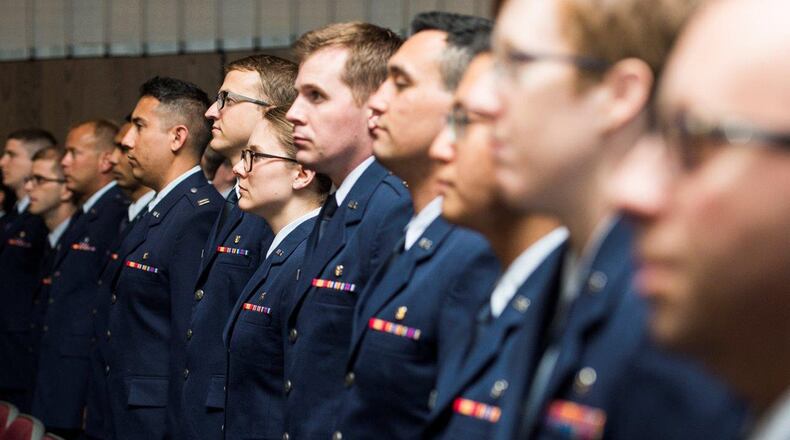The ceremony’s keynote speaker was Dr. Albert Painter, Ph.D., who is the designated institutional official to the Accreditation Council for Graduate Medical Education for the Wright State University Boonshoft School of Medicine, and is also associate dean for faculty affairs.
Resident graduates will move on to their first assignment as a staff physician in their specialty or, in many cases, will continue their training in a medical or surgical subspecialty, according to Col. Bradley Lloyd, MC, director of Medical Education at the Wright-Patterson Medical Center.
Interns who finished their first year of training after medical school graduation will, for the most part, continue in the joint Air Force/WSU residency programs, added Lloyd. A few interns will leave training and serve as general medical officers or flight surgeons prior to returning to finish a residency program.
Interns are honored even though they have between two to four years left in their training programs because completing the intern year is a crucial step in the process to becoming a fully qualified physician. It is also a requirement for licensure, explained Lloyd.
About the Author
